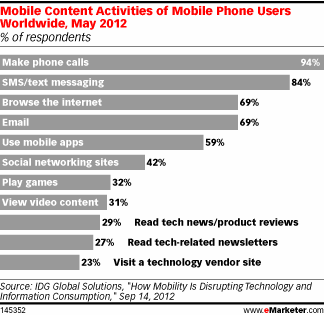As sort of a follow-up to my previous post on mobile search, AdWeek reports that 72% of consumers believe it’s important for brands to have mobile-friendly sites in place. A study published by Google adds that 96% of consumers stumble across sites that weren’t fit for mobile use. This is a disturbingly high percentage given the way that mobile search has integrated into our lives.
Mobile sites are not a marketing trend to be followed. Much like how businesses can’t imagine not maintaining a web presence, mobile sites should be regarded the same way. But why invest in developing mobile-optimized sites anyway? Over half of mobile browsers feel that not having the option of a mobile site damages their opinion of the brand. It also impacts their choice to revisit the site or to make a purchase. Since it’s just as easy to find similar information on search engines or review sites, the mobile layout should be clean and simple, yet attractive enough to entice users to come back. Finally, the mobile browser is task-oriented, and as a result the bounce rate is significantly higher if the consumer is dissatisfied with the mobile site experience from the onset. Tasks typically include searching for the basics – a company’s location, operating hours, phone number or contact email.
However, it is important to note the difference between “mobile-friendly” and “mobile-optimized”. The AdWeek article makes use of “mobile-friendly” when the author probably meant to say “mobile-optimized”. Steve Stadwiser does a good job of clarifiying the difference between the two terms; in summary:
- Mobile-friendly: The mobile site is identical to the desktop site, meaning the layout is scaling correctly on mobile devices.
- Mobile-optimized: The URL will redirect to a different, more compact version of your desktop website. They tend to be “optimized for the touch [screen] experience”, having less flashy images and wordy copy, but boasting a more streamlined navigation.

